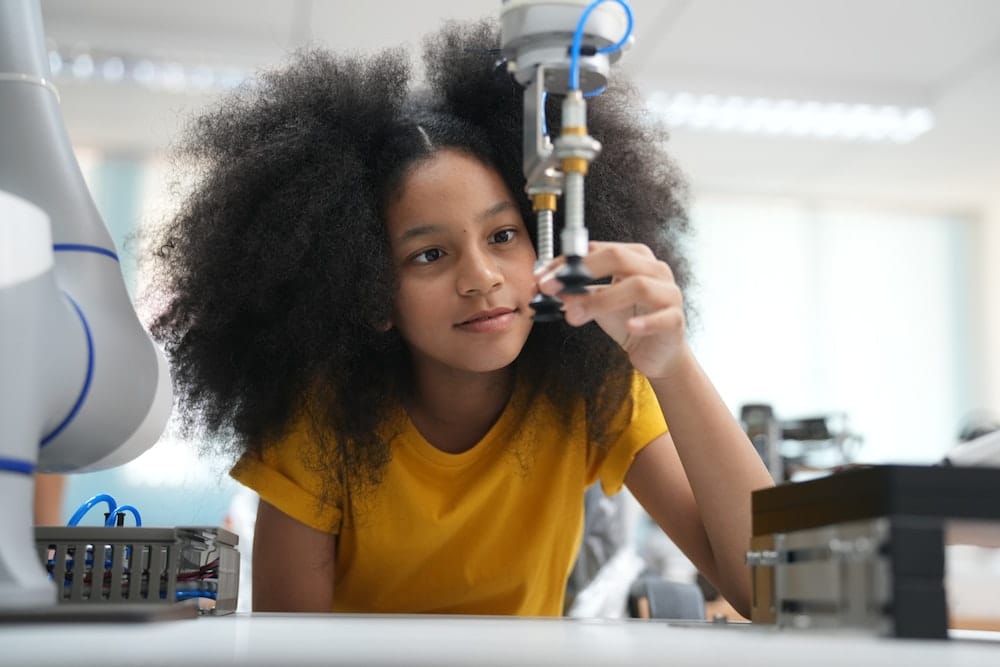Can AI Revolutionize Personalized Skin Care and Dermatological Treatments?

In the ever-evolving landscape of skin care and dermatology, we are continuously exploring the potential of new technology. The primary focus of skincare has always been to meet your unique needs, which is where personalized care comes in. In recent times, the advent of artificial intelligence (AI) has shown promising potential to take this to a whole new level. This article will delve into the possible impacts of AI technology on skin care and dermatology.
AI’s Role in Skincare: A New Era of Beauty Technology
Artificial Intelligence is no new term in the tech industry. Its applications are wide, and now, it’s making its mark in the beauty industry. Brands are using AI to provide personalized skincare suggestions, analyze skin health, and even predict future skin issues.
Sujet a lire : What’s the Latest in Autonomous Underwater Vehicles for Ocean Research?
AI’s role in skincare isn’t just a gimmick; it’s a response to a growing demand for personalized care. Everyone’s skin is unique, and AI can help cater to individual needs. It uses data derived from photographs, questionnaires, and other sources to offer customized skincare recommendations.
AI technology has also paved the way for digital analysis tools that can scrutinize skin conditions better than the human eye. These tools can identify signs of aging, sun damage, acne, and other skin conditions. They can even predict future problems based on current skin health, lifestyle, and environmental factors.
A voir aussi : How Is AI Assisting in the Detection of Financial Fraud in Real-Time?
The Intersection of AI and Dermatology: A Medical Revolution
Just as AI is revolutionizing skincare, it’s also making waves in the field of dermatology. Scholarly articles on Pubmed and other medical databases reveal fascinating studies on how AI can aid in diagnosing and treating several skin conditions.
AI’s role in dermatology is more than just skin deep. It’s a tool that can assist dermatologists in diagnosing skin diseases more accurately and swiftly. Machine learning algorithms can analyze thousands of images and pinpoint subtle differences that might escape the human eye. This can result in early detection and treatment of severe skin conditions, such as melanoma.
AI is also being used to develop personalized treatment plans for patients. By analyzing a patient’s medical history, genetic data, and lifestyle factors, AI can suggest a treatment plan specifically tailored to that individual’s needs.
Leveraging AI for Health Content: A New Age of Information
AI has also completely transformed the way health content is created and consumed. Gone are the days when you had to sift through countless Google search results to find reliable information about skin care and dermatological treatments.
AI algorithms comb through vast amounts of data from various sources, including scholarly articles, patient records, and online forums. They then use this data to generate reliable, personalized health content.
Whether you’re looking for information on a specific skin condition, want to know about the latest skin treatments, or are curious about the side effects of a particular medication, AI-driven content can provide accurate and relevant information tailored to your preferences and needs.
The Future is Personalized: AI’s Potential and Limitations
While AI’s impact on skin care and dermatology is promising, it’s important to remember that it’s still a tool. It’s not a replacement for human medical professionals or personal judgment. It can suggest, analyze, and predict, but the final decisions on diagnosis and treatment always rest with the patient and their doctor.
AI’s potential in skincare and dermatology lies in its ability to analyze vast amounts of data quickly and accurately. This can result in more effective, personalized treatments and better patient care.
However, there are also limitations to consider. AI algorithms are as good as the data they are trained on. Biases in the data can result in biased recommendations. Also, privacy concerns are an issue with AI, especially when dealing with sensitive medical data.
Despite these challenges, AI’s potential in revolutionizing personalized skin care and dermatological treatments cannot be denied. It’s an exciting time to be involved in skincare and dermatology, as we are at the forefront of a new era of personalized, technology-driven care. The future of skincare looks bright, indeed!
AI and Skin Care Education: Empowering Users
Artificial intelligence has not only made its mark in personalized skin care and dermatology practices but also in the realm of skin care education. The internet is flooded with information, and sifting through to find reliable and accurate details can be overwhelming. This is where AI comes into play.
Artificial intelligence can guide users to the right information, be it Google Scholar articles, PubMed research, or even forums where similar skin concerns are discussed. AI algorithms can comb through vast amounts of data—such as scholarly articles, customer reviews, and pmc free articles—and filter out the most relevant information based on the user’s specific search terms or skin concerns.
For instance, if you’re looking for information on skin cancer, AI can direct you to the most relevant and recent articles from the Department of Dermatology research, clinical trials, and more. This saves considerable time and effort while ensuring you get the most accurate and up-to-date information.
Furthermore, skin tech companies like Perfect Corp are utilizing AI to educate users about their skin. Users can get personalized tips and advice based on their skin analysis. By educating users about their skin health, AI empowers them to make informed decisions about their skin care routine and treatment options.
The Challenges and Ethical Considerations of AI in Dermatology
The promise of AI in revolutionizing skin care and dermatology is undoubtedly exciting. However, we must also address the ethical challenges that come with the utilization of AI and machine learning in these fields.
One of the major concerns is data privacy. Since AI heavily relies on data for its effectiveness—be it images for skin analysis or personal data for personalized treatment—it’s imperative to ensure these data are handled responsibly. Skin tech companies and dermatology practices must employ stringent data security measures to protect user data.
Another concern is the potential bias in AI algorithms. If the data used for training these algorithms are biased—for instance, if the skin images used are predominantly of a certain skin type—it can lead to biased recommendations and diagnoses. Ensuring diversity in the data used can help mitigate this issue.
Finally, it’s important to remember that AI can assist but not replace human judgment, especially in complex fields like dermatology. AI can augment dermatologists’ ability to diagnose and treat skin conditions, but it cannot replace the nuanced understanding and experience of a human medical professional.
Conclusion: The Future of AI in Skin Care and Dermatology
Artificial intelligence is indeed poised to revolutionize personalized skin care and dermatology treatments. From providing detailed skin analysis, suggesting personalized skin care routines, aiding in early detection of skin conditions, to creating an efficient information trail for users—AI is proving to be a game-changer.
However, it’s imperative to ensure that the implementation of AI is done with due consideration to data privacy and potential biases. Dermatology practices and skin tech companies must work towards creating ethical AI applications that prioritize user’s needs and rights.
In conclusion, while AI holds great promise in personalizing skincare and dermatology, its success lies in its responsible application. As we continue to explore its potential, one thing is clear: the future of skin care and dermatology is personalized, data-driven, and exciting. Truly, the future is here!
